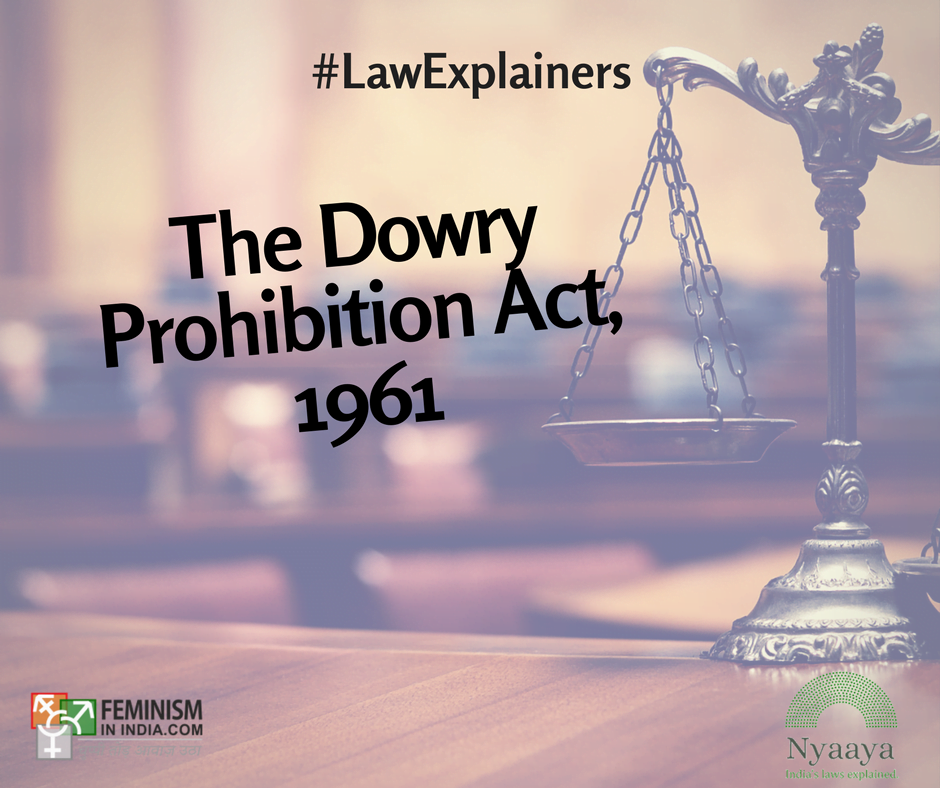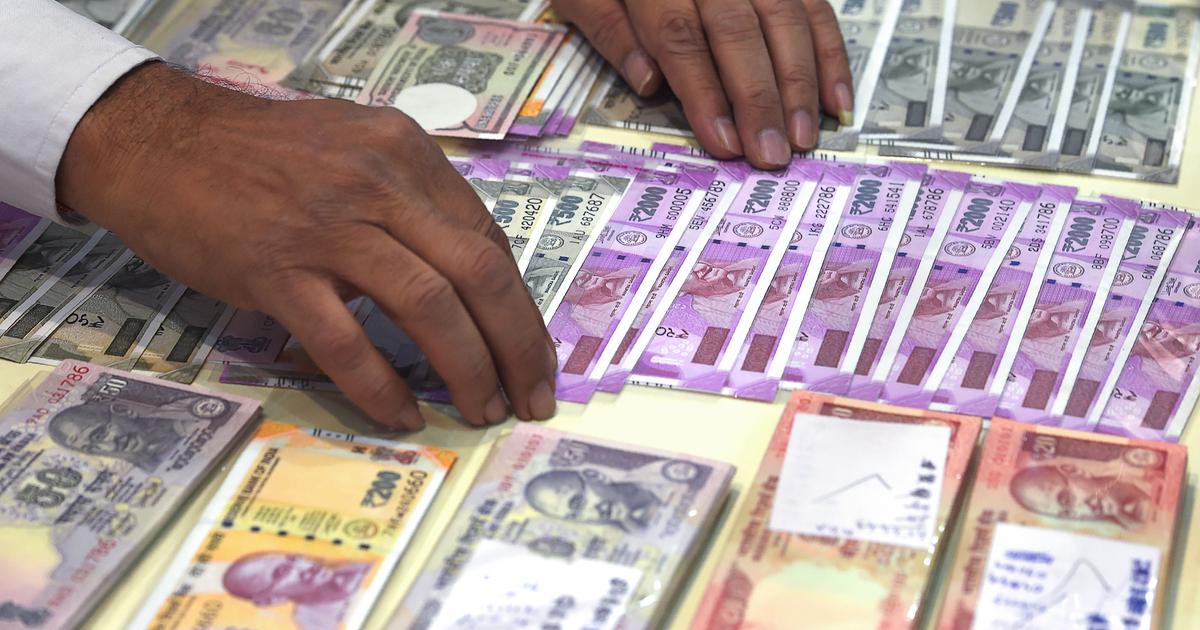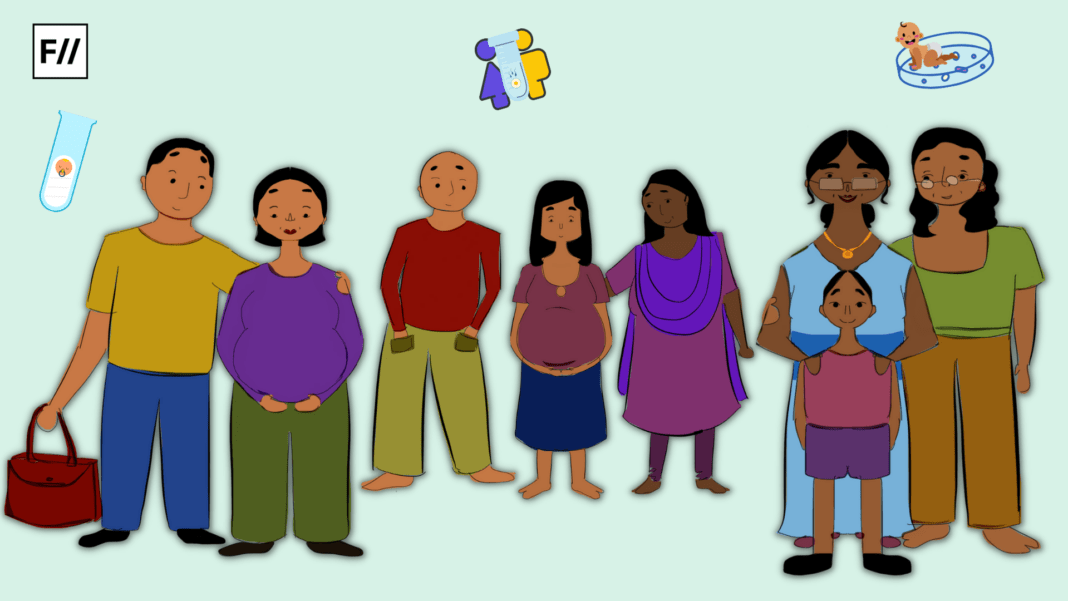Editor’s note: #LawExplainers is a series by FII and Nyaaya, which explores laws on women, children and marginalised groups and explains them in a simple and accessible language in both English and Hindi.
What is this law about?
- This Act prohibits the practice of giving or taking of dowry by either parties to a marriage. This law also punishes demanding and advertising dowry.
- It imposes a duty on parties getting married to make a list of gifts and presents.
- If dowry has been exchanged at a wedding anyway, it imposes a duty on the person who is given dowry to give it to the bride.
- Note that the more serious crimes in relation to dowry such as dowry death and cruelty from dowry demands are punishable under the general law on crimes – the Indian Penal Code, 1860.
Who can be punished under this Act?
- Any person who gives or takes dowry (minimum punishment of five years);
- Any person who helps someone to give or take dowry;
- Anyone who in any way demands dowry;
- Anyone who advertises and offers to give money or property in return for marrying his son, daughter or relative;
- Anyone who publishes these advertisements;
- Anyone who does not hand over the dowry to the bride within the specified time.
Read the entire act here.
Also read: Another Domestic Violence Story; Yes, Dowry Is Still Rampant In India




